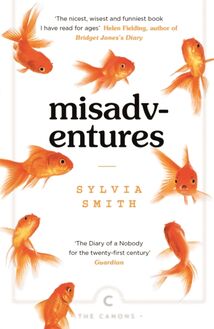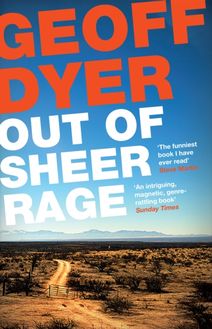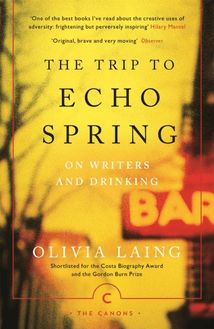-
 Univers
Univers
-
 Ebooks
Ebooks
-
 Livres audio
Livres audio
-
 Presse
Presse
-
 Podcasts
Podcasts
-
 BD
BD
-
 Documents
Documents
-
- Cours
- Révisions
- Ressources pédagogiques
- Sciences de l’éducation
- Manuels scolaires
- Langues
- Travaux de classe
- Annales de BEP
- Etudes supérieures
- Maternelle et primaire
- Fiches de lecture
- Orientation scolaire
- Méthodologie
- Corrigés de devoir
- Annales d’examens et concours
- Annales du bac
- Annales du brevet
- Rapports de stage
La lecture à portée de main
Vous pourrez modifier la taille du texte de cet ouvrage
Découvre YouScribe en t'inscrivant gratuitement
Je m'inscrisDécouvre YouScribe en t'inscrivant gratuitement
Je m'inscrisEn savoir plus
Vous pourrez modifier la taille du texte de cet ouvrage
En savoir plus

Description
Informations
| Publié par | Canongate Books |
| Date de parution | 04 juillet 2019 |
| Nombre de lectures | 0 |
| EAN13 | 9781786892775 |
| Langue | English |
Informations légales : prix de location à la page 0,0360€. Cette information est donnée uniquement à titre indicatif conformément à la législation en vigueur.
Extrait
Eve Babitz was born and grew up in Hollywood. She began to write in 1972 after designing album covers for such artists as Linda Ronstadt, Buffalo Springfield, The Byrds and Lord Buckley. Her articles and short stories have appeared in Vogue, Rolling Stone, Esquire and The New York Times Book Review .
Also by Eve Babitz:
EVE ’ S HOLLYWOOD SLOW DAYS , FAST COMPANY SEX AND RAGE
First published in Great Britain in 2019 by Canongate Books Ltd, 14 High Street, Edinburgh EH1 1TE
This digital edition first published in 2019 by Canongate Books
First published in the USA in 1982 by The Linden Press/Simon & Schuster, 1230 Avenue of the Americas, New York, New York 10020
canongate.co.uk
Copyright © Eve Babitz, 1982 Introduction copyright © Eve Babitz, 2015
This book is a work of fiction. Any references to historical events, real people, or real places are used fictitiously. Other names, characters, places, and events are products of the author’s imagination, and any resemblance to actual events or places or persons, living or dead, is entirely coincidental.
The moral right of the author has been asserted
British Library Cataloguing-in-Publication Data A catalogue record for this book is available on request from the British Library
ISBN 978 1 786 89 276 8 eISBN 978 1 786 89 277 5
CONTENTS
Preface to the New Edition
Chapter One
Chapter Two
Chapter Three
Chapter Four
Chapter Five
Chapter Six
Chapter Seven
Chapter Eight
Chapter Nine
Chapter Ten
Chapter Eleven
Chapter Twelve
Chapter Thirteen
Chapter Fourteen
Chapter Fifteen
Chapter Sixteen
Chapter Seventeen
Chapter Eighteen
Chapter Nineteen
Chapter Twenty
Chapter Twenty-One
Epilogue
For us all
PREFACE TO THE NEW EDITION
At the time I wrote L.A. Woman , I thought that it was going to be the book that took over the world. Ya know, that got me everything. That everything in my life would finally go my way. It came out in 1982 – the exact same time John Belushi was killing himself at the Chateau Marmont. I had been trying to get along with John Belushi for a long time. My agent sent me to New York to write about Belushi and get an in at Saturday Night Live , but I didn’t know that at the time. He lived in a cement bunker and, you know, was famous for not being very much fun, except for his skits and everything. I tried to but could never get around him, because he was surrounded by guns and cement bunkers.
The person I ended up influencing instead was Steve Martin – who is also from the West Coast – so maybe I had more of a chance with him. I was the one who suggested that he wear that white suit. I got the idea from a 1906 Jacques-Henri Lartigue photo of a man in a white suit on the beach in Cannes titled “Cousin Caro.” Lartigue took these photos when he was ten years old. He started when he was seven and continued taking them throughout his life till he accrued 250,000 of them. The day after his wedding he took a photo of his wife on the toilet. It’s titled “Bibi,” which was his nickname for the high-society Madeleine Messager, mother of his only child. She’s smiling, because she knows it’s for fun. So the guy’s funny and that’s what inspired Steve Martin, because he “got” Lartigue and became an immediate fan. Lartigue kept taking pictures of his family and they are now on sale at the Museum of Modern Art.
I told Steve Martin that everyone else was going for darkness, but darkness doesn’t pay off. I was the one who convinced Steve with that picture. I tried to convince the Eagles to wear white suits, too, but their reaction was, “No way!” They would have looked good! Don Henley eventually wound up wearing white suits in the ’80s. So did the guy who was married to Melanie Griffith. Don Johnson. Remember that Miami Vice thing? I mean everybody wore white suits. I finally got my way. Or they wore pale, incredible pastel colors. I totally got my way!
Let me tell you: when L.A. Woman came out, it had the perfect title. Then Jim Morrison stole the title for his album. But I am the “L.A.” woman! I had some help from my friend Diane Gardiner, who was a publicist. She publicized me nonstop. She just quoted all my funny remarks and they wound up in Rolling Stone and that’s why people wanted to meet me. So Diane kind of made me famous. Her own remarks were even funnier, but she kept a lid on it. That’s how all that happened. So, when L.A. Woman came out, I was just positive that I was going to take over the world.
I got reviewed in the New York Times . I thought they would “get” me, even if I’m from Los Angeles. So with L.A. Woman I thought they were going to get me that time and just publish everything in the book, stick excerpts in the paper and it was going to be just great! But the critique of my book was titled “A Dull Girl.” I hate the New York Times ! I thought it would be wonderful. P. J. O’Rourke didn’t like me. I couldn’t believe it – a bad review in the Times ! It went against all my principles. It was just awful. The truth is, they only get me when I haven’t written a book in like ninety years, then they write a huge article about me and say how great I am in the Style section. But if I write a book they’re like, “Oh, this is horrible!” Unless I write nonfiction. Then the New York Times likes me.
So, I told everybody I was going to kill myself. But I woke up rested, damn it! After sleeping two days, I was up for eight. I was up with my mother. We were drinking vodka and couldn’t fall asleep. My father had also died, so we just went on a vodka bender. My mother managed to get a doctor to shoot her up with sedatives so she could sleep. But I had to take all these pills. I think it was Thorazine left over from my father’s deathbed. Most addicts kill themselves by just trying to get some sleep. I’ve always had an iron constitution and could never do it. That’s when John Belushi immolated himself in the Chateau Marmont. I was staying there at the same time, trying to kick drugs. Steve Martin and Michael Elias were paying for my stay. Carl Reiner said this thing: “Don’t all those drugs disguise your symptoms?” I thought that was the purpose. I had all these symptoms and, you know, they gotta be disguised. Like boredom. Or the usual alcoholic thing, like bad excuses.
I just totally drove every person crazy. Even Paul Ruscha said I had to quit. And Paul never says anyone has to quit. Because codeine. That’s the worst, most boring, and horrible drug. It had sabotaged all my relationships. Paul had to suffer with pain and misery because of the way I dated him. I was always on one drug or another. I thought, Well, if Paul can’t stand it (because Paul loves everybody no matter what they do or how horrible they are), I should consider getting sober.
And codeine makes you obnoxious . . . on three continents. I went on a last horrible binge and fired everyone important in my life. I didn’t realize they were trying to help me. I was so paranoid I thought everyone was against me. And that was just the codeine. I had to thank P. J. O’Rourke for the slashing review, because I owe my sobriety to him. It was either kill myself or go to Alchoholics Anonymous. The usual choice. I did thank him through friends, because that bad review got me sober. I ultimately met him and liked him, because calling me a “Dull Girl” was actually pretty funny.
— Eve Babitz, October 19, 2014 Transcribed and edited with the assistance of Alexandra Karova
Are you a lucky little lady in the city of light.
—Jim Morrison “L.A. Woman”
Chapter One
O NE SUMMER MORNING while I was still a virgin though my virginity was on its last legs, I woke up and didn’t want to go to New Jersey. It wasn’t fair that they wanted me to go to New Jersey; I didn’t want to go – I was seventeen and no seventeen-year-old L.A. woman would go to New Jersey if she could get out of it, especially a seventeen-year-old with a boyfriend like mine – a dreamboat who was twenty-five, was under contract to Fox as a leading man, black wavy hair and blue eyes, his father a French leading man who’d once starred in a tearjerker with my Great Aunt Golda and made a million dollars which he lost on a misadventure. Anybody who went to New Jersey just to visit Aunt Helen, I supposed with outraged sensibilities, would have to be nuts. Aunt Helen was nuts to have moved to New Jersey at all, and she was really insane inviting decent L.A. people to visit her on the fucking East Coast.
But my father and mother kept up their demand, even if I did remain in L.A., about the people they would allow me to remain with. I refused hands down. Not my grandmother, period – I mean, staying with my grandmother would be like not being in L.A. at all. My Aunt Goldie’s place was big enough but my cousin Ophelia had been such a drag in those days and gone to such lengths to antagonize her new stepfather by leaving joints around in 1960 where he could see them that he’d become embittered against the entire younger generation of Lubins before my sister Bonnie or I even had a chance to try our hand. I wouldn’t stay with the people across the street who’d been there while I was growing up and whose daughter Shelly Craven was my age and with whom we have everything outwardly in common, because for one thing we didn’t forgive them – they were Stalinists and a line of blood was painted right down the middle of Foothill Drive once they moved in when I was six – and besides, they weren’t home, they were in Rome. Not that I myself wouldn’t have forgiven them for being Stalinists – what I didn’t forgive them for was playing Pablo Casals on the record player and having that melodrama going on in the middle of the afternoon as Molly Craven’s token of cultural refinement. And none of my friends, like Franny Blossom, were people whose families my family would put up with – although Franny’s house, God knows, was a rambling mansion and the whole guest wing was empty since Franny’s “uncle” – who wasn’t really an uncle but who dra
-
 Univers
Univers
-
 Ebooks
Ebooks
-
 Livres audio
Livres audio
-
 Presse
Presse
-
 Podcasts
Podcasts
-
 BD
BD
-
 Documents
Documents
-
Jeunesse
-
Littérature
-
Ressources professionnelles
-
Santé et bien-être
-
Savoirs
-
Education
-
Loisirs et hobbies
-
Art, musique et cinéma
-
Actualité et débat de société
-
Jeunesse
-
Littérature
-
Ressources professionnelles
-
Santé et bien-être
-
Savoirs
-
Education
-
Loisirs et hobbies
-
Art, musique et cinéma
-
Actualité et débat de société
-
Actualités
-
Lifestyle
-
Presse jeunesse
-
Presse professionnelle
-
Pratique
-
Presse sportive
-
Presse internationale
-
Culture & Médias
-
Action et Aventures
-
Science-fiction et Fantasy
-
Société
-
Jeunesse
-
Littérature
-
Ressources professionnelles
-
Santé et bien-être
-
Savoirs
-
Education
-
Loisirs et hobbies
-
Art, musique et cinéma
-
Actualité et débat de société
- Cours
- Révisions
- Ressources pédagogiques
- Sciences de l’éducation
- Manuels scolaires
- Langues
- Travaux de classe
- Annales de BEP
- Etudes supérieures
- Maternelle et primaire
- Fiches de lecture
- Orientation scolaire
- Méthodologie
- Corrigés de devoir
- Annales d’examens et concours
- Annales du bac
- Annales du brevet
- Rapports de stage




















